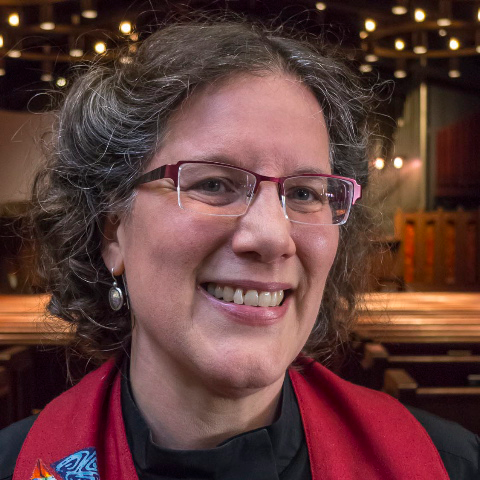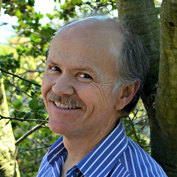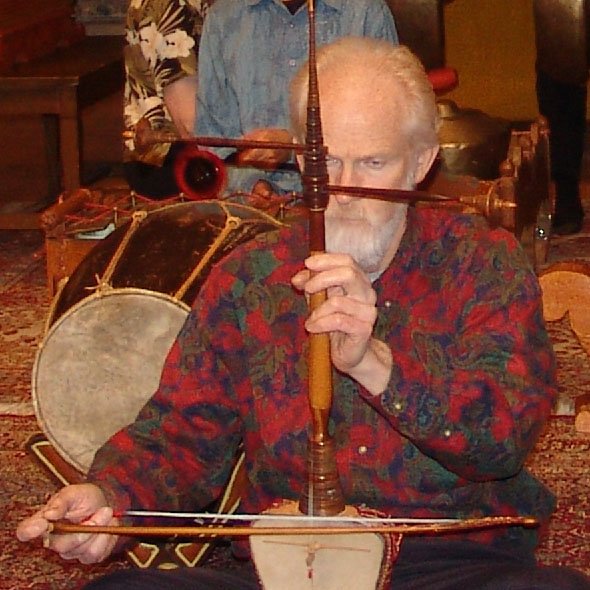{podcast_episode 209}
One day you finally knew
what you had to do, and began,
though the voices around you
kept shouting
their bad advice —
though the whole house
began to tremble
and you felt the old tug
at your ankles.
“Mend my life!”
each voice cried.
How many people can really identify with that poem by Mary Oliver?
How many people left home at some point… having finally come to a hard fought epiphany that remaining in that place – with those people – watching the same swirling drama, the same ingrained dysfunction, having the same predictable arguments – even one more day – would suck out your last precious breath… and force you to surrender what remained of your fledgling and fragile sanity?
How many people had this thought as you left your house this morning?
I mean that to be funny. But, of course, it isn’t funny when it’s happening… and when it’s happening to us. And, of course, it’s happened to most of us – if not ALL of us – at some point. Being part of a family means feeling stuck in some predictable, repeating cycles of drama… ones that involve a bit of dysfunction (often never named and certainly not talked about)… with people we’ve known for as long as we can remember… people we’ve needed… people we really have loved – and who have loved us – even if that love (given and received) has felt confusing at times… like love is being woven together with other confusing feelings… like hurt and worry and fear.
But being part of a family also usually entitles – even obligates – you to participate in the regular gathering rituals. Those beloved reunions – frequently connected with the upcoming holidays. These reunions, for many, bring up confusing feelings – a mix between nostalgic yearning and compulsive phone calls to your therapist.
Show of hands. How many here are going home for the holidays…? Or playing host for the traveling family circus? Or… how many – whether or not you are reuniting with family – have cherished rituals from your family of origin that are non-negotiable cornerstones of your holiday traditions? Even if you don’t completely understand why…?
By that I mean the story of the youngest in the family who, after noticing for the 10th consecutive year that his mother always cut off the end of the Christmas ham before putting it in the oven. And when he asked her why, he noticed she became misty eyed and nostalgic about family traditions and how she’d learned the ritual from her mother. And so the boy went into the other room and asked his grandmother about it and noticed she got misty eyed and nostalgic about everything her mother taught her. And finally, after calling and asking his great grandmother, he heard her say, “Oh, that’s just ‘cause your great granddaddy was too cheap to buy an oven big enough to cook a decent sized ham.”
But how many, with such confusing traditions alive in our own family have come to the conclusion that, despite misgivings, you have to go. Any kind of resistance is futile. You’ve already been assimilated. Resistance or refusal to show up only results in a visit from someone from the family specially selected and charged with the task of bringing you to your senses and lure you back to the tar pits of family dysfunction where you will return ‘normal’ back into the ‘abnormal’ hilarity everyone has come to count on.
This morning, I want to talk about all this… which is to say, I want to talk about family systems. Family systems is a branch of psychology and a way of understanding families as developed by Murray Bowen during the 60’s, 70’s and 80’s. His theories are what popularized terms like ‘triangulation’ and emotional ‘cut-offs,’ as well as emphasizing the importance of sibling position and family roles.
In a nutshell, this is my understanding of Bowen’s theory.
Every family not only has a certain amount of dysfunction, but most families are built around it – like the seed around which a molecule crystalizes. This is (in most cases) normal and it’s simply because each family is started by parents who grew up in families that had their own dysfunction and they simply carried forward the quirks and idiosyncrasies taught to them into the families they started. The ideal, of course, is that we ‘evolve’ or ‘grow out of’ whatever dysfunctions we pick up BEFORE we pass them on. And, of course, we all swear we will do this when we are teenagers, right? In fact, it’s usually part of the courting ritual to confess all the dysfunction of the family you come from while vowing that you are determined to do things very different with a family of your own.
But it’s hard. And despite all the promises we make that our families will be different, we usually all encounter at least a few horrifying episodes where we hear ourselves, in a moment of great duress, say or do something frighteningly identical to what we considered unacceptable from our parents.
And we wonder, how did that happen? How did we carry forward something we so adamantly wanted to liberate ourselves from?
One of the things that Bowen pointed out is that, despite the pain and frustration we felt around the dysfunction we grew up with, the prime directive in most families is not to learn about or heal or overcome dysfunction. Rather, it is to minimize and stabilize dysfunction. At least, minimize and stabilize the anxiety brought about by the presence of the dysfunction which often means downplaying the dysfunction or pretending it doesn’t really exist.
And, minimizing dysfunction is something that requires everyone’s participation – which is why every member of the family ends up playing a unique and critical role. The stereotype example is the alcoholic father who behaves badly when drinking and the codependent and over-functioning mother who tries to cover up or minimize the problems. The goody-two-shoes eldest daughter who becomes the high achieving face of the family… the black sheep youngest boy who acts out and deflects attention away from the real problems and the sensitive middle child who’s job it is to manage the conflict by mediating conflicts and keeping anxiety at a minimum.
Families develop complex structures of balance which requires everyone to play their part in order to keep the whole thing from spiraling into conflict. But what happens if someone doesn’t show up. If someone decides instead to channel their energy toward their own fulfillment instead of to stabilize the family dysfunction?
Murray Bowen worked with a man named Ed Friedman who asked questions like this. In fact, Friedman wrote a book called ‘Friedman’s Fables,’ which offered many versions of how this can play out. This is one called, ‘The Rope.’
<><><>
There was a man committed to breaking free of patterns and routines that no longer worked for him. He’d tried to leave many times before but couldn’t. But,
“One day he finally knew what he had to do and began.”
One day, instead of his regular routines, he packed his bag and left his home. He walked out of his neighborhood. Out of his village. Out beyond everything that was his life. And he saw the bridge which extended to the life he always wanted. “Finally!” he thought. He walked faster.
As he approached the bridge he looked across to see a man approaching him from the other side. He kept walking. And soon he could make out that the man was carrying something. As he got closer he could make out that the man carried a rope. When the two men were came within 20 yards, the man with the rope began to tie one end around his waist. And just as they came within speaking distance the man with the rope took the free end and said, “Pardon me, would you be so kind as to hold the end of this rope for a moment?”
Surprised by this request, but wanting to be helpful, the man on the journey instinctively reached out and took the rope.
“Thank you,” said the man who was carrying the rope. And then he added, “Two hands now, and hold tight.” Where upon he jumped off the side of the bridge.
Startled, the man holding the rope was almost jerked over the side. He strained to hold on. In stunned disbelief, to see the man dangling. He called out, “What are you doing?”
“I’m hanging on,” came the response matter-of-factly.
“What?” questioned the man. He tried pulling but he couldn’t bring up the man – even all his strength. “This is crazy!” he called out.
“Never mind that,” the voice called back. “Just hold tight! If you let go I will be lost.”
The man thought how unbelievable this was. He had finally envisioned his own calling – his own freedom – he was almost there – and now he was stuck on this stupid bridge. “Who is going to come save you?”
“No one is here but you! You must save me. I am your responsibility now.”
Becoming desperate, the man searched for some place to tie the rope; but there was nothing.
“What do you want from me?” he asked the hanging man.
“Nothing. Just hang on,” came the answer.
“But, I cannot pull you in, and there is no place to tie the rope.”
“I know that. Just hang on; that will be enough. Tie the rope around your waist; it will be easier.”
“I can’t keep doing this!” the exasperated man said as his strength drained from him.
“You must!” the voice returned. “If you let go, I will die.”
The man strained with the rope. But even more with his dilemma. What should he do. If he holds on, he’s stuck. But if he lets go, someone may die? He thought about jumping over the side himself. “That would teach this fool,” he thought. But then he would die – and just when he had begun to realize how much he wanted to live!
After what seemed like an eternity, a decision came to him. And it was such a new revelation, it seemed alien and even heretical.
“I want you to listen carefully,” he said, “because I mean what I am about to say. I will no longer accept responsibility for what happens with your life. That responsibility I hereby give back to you.”
“What do you mean?” The dangling man asked, afraid.
“I mean, it’s up to you. You decide which way this turns out. I will become the counterweight. You do the pulling and bring yourself up. I will even tug a little from here. But it’s up to you,” he said and began unwinding the rope which he’d wrapped around his waist.
“What are you doing?,” the dangling man protested. “You would not be so selfish. I am your responsibility. Do not do this to me!”
“It’s clear to me that your situation is not my doing. I will give you the chance to change your fate. But I haven’t the power – or the interest – to change it myself. What do you choose?”
The man hanging protested violently.
“Are you ready to save yourself?” the question came again.
The hanging man refused. He just continued to dangle.
“I accept your choice then,” said the man on the bridge. And he let go of the rope.
<><><><>
Sound harsh?
Listen again to this excerpt of the Mary Oliver poem:
“Mend my life!”
each voice cried.
But
It was already late enough,
and a wild night,
[so] little by little…
you left their voices behind,
…and there was a new voice
which you slowly
recognized as your own,
that kept you company
as you strode deeper and deeper
into the world,
determined to do
the only thing you could do —
determined to save
the only life you could save.
Make more sense? I hope so…. Because it gets harder.
Ed Friedman took Murray Bowen’s ideas and added one fundamental assertion. Religious institutions, he said, operate just like families. Churches, synagogues and mosques are just made from people who come from families. And so, will operate according to what they learned there – to stabilize and minimize dysfunction rather than heal it.
BUT – he added – churches contain an antidote – should they choose to take it. Churches contain the power to teach self-realization, empowerment, differentiation and leadership which help to heal these dysfunctions. Indeed, it is the mission of most spiritual communities to offering healing and a liberating message from the things tying us in knots.
For the last two years I worked with the people at the Friedman Center in Washington DC. So I can offer the reassurance that what Friedman and Family Systems theory is saying is not that we should let go of all the ropes handed to us.
Our real goal, as Friedman describes, is to become self-differentiated; which is to say clear minded, comfortable in our own skin, resilient and grounded. Our real goal is not to choose whether to love others OR love ourselves. Our real goal is to figure out how to love others AND STILL love ourselves.
Learning to do this IS about finding our freedom. And sometimes the best teachers are the people in our family – and the people in our church.
There’s a poem which describes this by UU troubadour, Ric Masten. It’s called ‘Garden Club Existentialism’
unable to get going today I allowed myself time to lie around the house
watching afternoon TV
and my God, I had no idea how awful life could be
You see there was this young lab technician
who wanted to marry a blind girl
not because he loved her
which he didn’t
but because he had fathered her first child
when she’d been married to his alcoholic brother…
the brother in the meantime had developed lung cancer while in prison
but the surgeon who was to perform the operation
had been murdered by the blind girl’s mother
who had gone mad after being bitten by a tropical insect
that was part of the young lab technician’s experiments…
all this happened when the mother tampered with these experiments
hoping to discredit him
so that her daughter might remarry
the alcoholic brother who had quit drinking
and, what with the operation and everything,
needed all the help he could get…
and I sat there dumbfounded
through a series of soap and personal injury litigation commercials
until the preview of tomorrow’s Ongoing Agony
at which point I got up
and went into the bathroom with a wrench
and in two minutes repaired a faucet
that had been leaking for a year and a half
then, resting on the edge of the tub,
admiring my handiwork
I laughed ‘til I cried
which all goes to prove
that there ain’t no such thing as a [perfect story]
but if you’re able to remain grounded
while everything around you becomes unglued
you can change the world
simply by repairing your own leaky life.
<><><>
Friends, returning home can be a sweet thing. It can also be a challenging thing. If it offers an opportunity to practice self-differentiation, it can be a spiritual practice. But, it’s important to remember that for some, where abuse was part of the equation, it can be a tender time. For some, it’s important just to realize that going home is not supposed to be a suicide mission.
If you are traveling in the next couple weeks to see family, and you are unsure, remember to pack all the love in this room and take it with you. Take the reassurance that you are loved. And you are enough. And pay special attention to the wisdom of the flight attendant:
‘Put your own breathing device on before attempting to assist others.’
To the Glory of Life
Copyright © 2014, Rev. Greg S. Ward. All Rights Reserved.

















